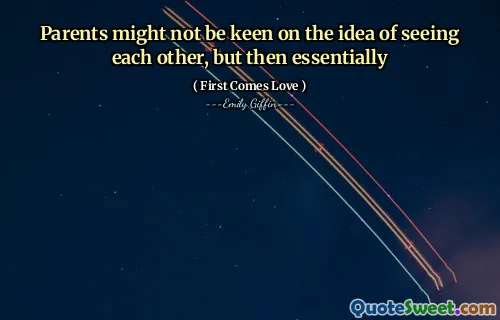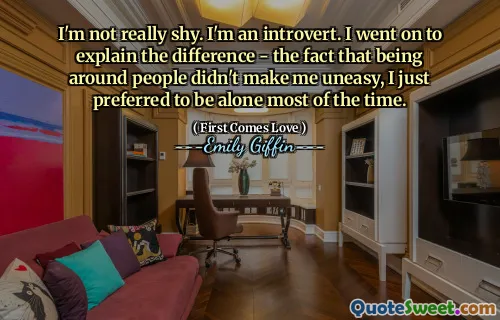
Parents might not be keen on the idea of seeing each other, but then essentially
This fragment of a quote from Emily Giffin's First Comes Love encapsulates a certain tension and complexity inherent in family relationships—particularly those between parents who may have differences or unresolved issues. The phrase "might not be keen on the idea of seeing each other" suggests reluctance, discomfort, or emotional distance, which often exists between parents who have experienced conflict, divorce, or estrangement. Yet, the use of "but then essentially" hints at an underlying truth or inevitability that transcends that initial reluctance—perhaps a fundamental bond or need that draws them back together despite their hesitation.
Reflecting on this quote brings to mind the delicate balancing act family members often perform: navigating their complicated feelings while maintaining connections for the sake of children, legacy, or shared history. It highlights the emotional complexity of adulthood and family dynamics, where one must reconcile personal feelings with broader family responsibilities.
In many real-world scenarios, parents might feel hesitant to engage with each other because of past grievances or personal pain, but practical realities or deeper emotional ties continue to bring them together. The partial nature of the quote invites readers to ponder what follows "but then essentially," leaving space for interpretation about the underlying forces that shape family bonds. Such nuance is a hallmark of Giffin's storytelling, which often digs into the messy, beautiful realities of love and family.
This brief snippet reminds us how human relationships are rarely straightforward. They are often a mixture of reluctance, acceptance, conflict, and unconditional connection. It reflects on how, especially in families, emotions are entangled and decisions are made amid complex feelings, making the navigation of these relationships both challenging and essential.







